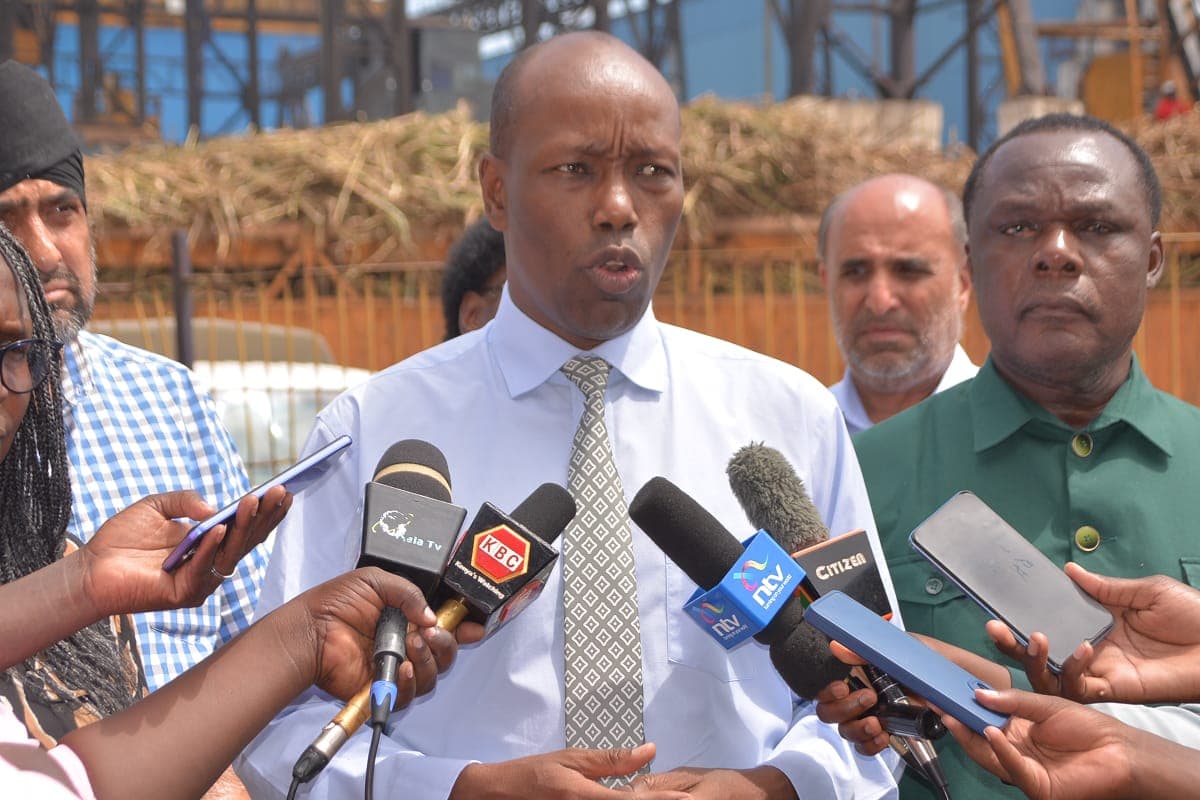We're loading the full news article for you. This includes the article content, images, author information, and related articles.
To avert a severe shortage, Kenya has authorised a special import window for raw sugar, allowing industrial processors to procure supplies while officials work to boost local cane production.

Kisumu, Kenya – The government has announced a temporary window for the importation of raw sugar to cushion industries and consumers against one of the country’s worst sugar deficits in recent years. Speaking at Kibos and Allied Industries in Kisumu, Trade Cabinet Secretary Lee Kinyanjui said Kenya faces a shortfall of about 400,000 metric tonnes, which has left many factories idle and disrupted supply chains.
The special import window is designed to help industrial processors in the food, beverage, and pharmaceutical sectors secure adequate supplies of raw sugar. Kinyanjui noted that many plants have been operating below capacity, threatening thousands of jobs and the production of essential goods.
“This intervention is temporary and carefully regulated. It is meant to keep our factories running while we revive domestic production,” Kinyanjui said. He stressed that the imports will be vetted to ensure compliance with quality standards and to prevent market flooding.
The CS emphasised that imports are not a replacement for local cane farming, reaffirming that self-sufficiency remains the government’s ultimate goal. Authorities are working with growers to expand acreage, provide better seed varieties, and address chronic challenges that have hindered productivity.
Farmers have long complained about delayed payments, poor extension services, and aging mills, which have discouraged cane cultivation.
Kenya’s sugar industry has endured cyclical crises, fuelled by mismanagement, outdated milling technology, and the influx of cheap smuggled sugar from neighbouring countries. Analysts warn that the current deficit is among the most severe, with some factories on the brink of closure due to lack of raw material.
“Without intervention, we risk factory shutdowns, job losses, and price shocks that will ripple through the economy,” said an industry economist.
Stakeholders cautiously welcomed the import window, viewing it as a short-term lifeline. However, they urged the government to accelerate reforms, including:
Modernising mills to improve efficiency.
Boosting farmer productivity through better support services.
Curbing smuggling and illicit trade, which undercut local producers.
Farmers also pressed for guarantees that imports would not unfairly displace their produce once local harvests resume.
Sugar is a vital input for Kenya’s manufacturing sector and a key household commodity. Shortages have already driven up retail prices, raising concerns about affordability for consumers and stability for industries. Ensuring a stable, predictable supply chain, experts argue, is central to both food security and industrial competitiveness.
The government has signalled that imports will remain tightly controlled and time-bound. Meanwhile, efforts to restructure the industry—through public-private partnerships, debt restructuring for state-owned mills, and investment in farmer support programs—are expected to determine whether Kenya can finally stabilise its sugar sector.
Keep the conversation in one place—threads here stay linked to the story and in the forums.
Sign in to start a discussion
Start a conversation about this story and keep it linked here.
Other hot threads
E-sports and Gaming Community in Kenya
Active 9 months ago
The Role of Technology in Modern Agriculture (AgriTech)
Active 9 months ago
Popular Recreational Activities Across Counties
Active 9 months ago
Investing in Youth Sports Development Programs
Active 9 months ago
Key figures and persons of interest featured in this article